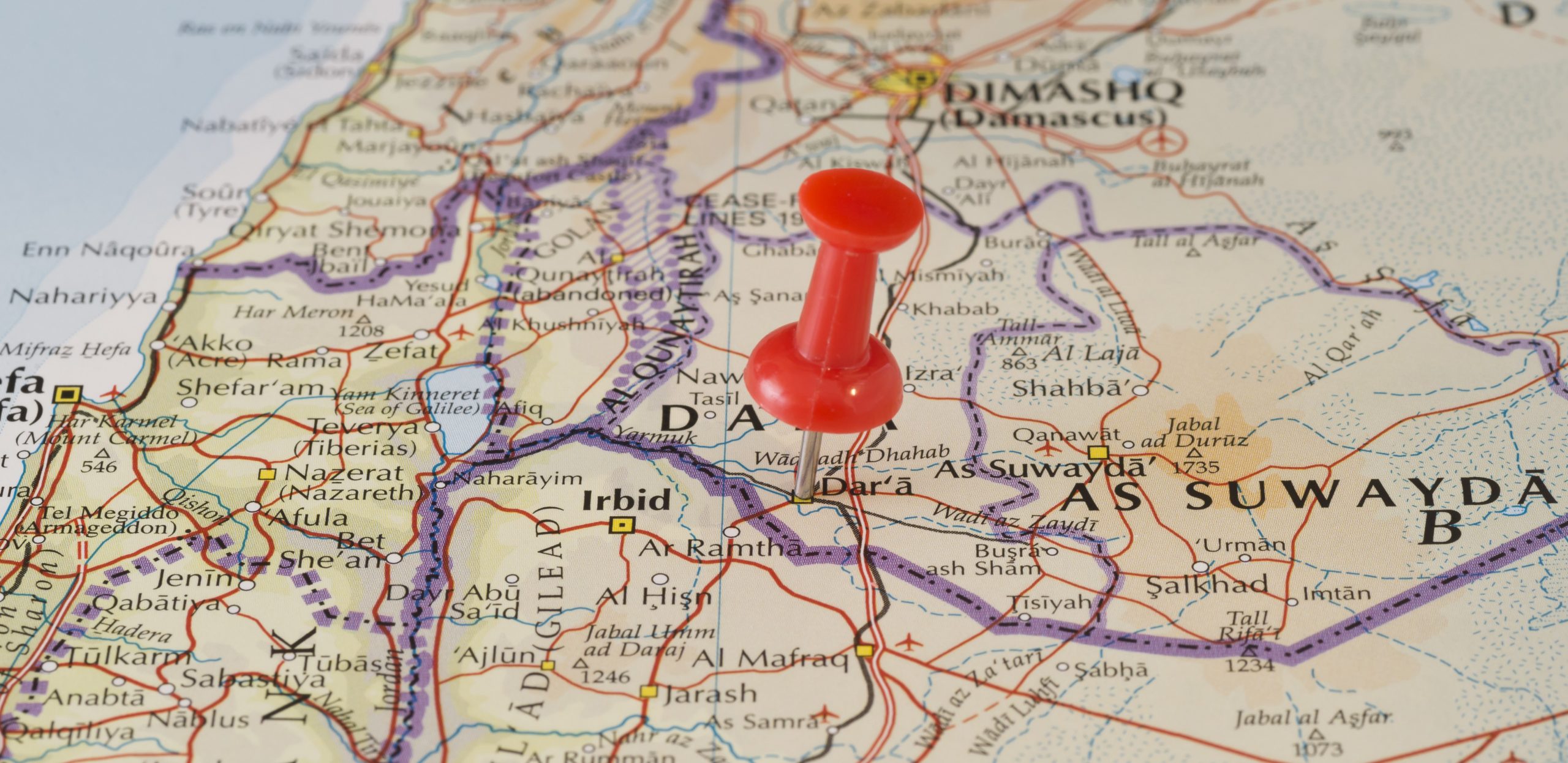The current military tension in Deraa indicates that the 2018 agreement between the Syrian regime and the Central Committees, the main rebel forces located in Deraa, has not held up despite the repeated Russian attempts to keep both parties from engaging in conflict. The Russian presidential envoy Alexander Zorin has sought to undertake a mediating mission between both parties that has led to a truce. However, this truce did not last very long, and following the last meeting between the Syrian Defense Minister and the Central Committees, both parties have once again taken up arms, and thousands of civilians are fleeing the area.
It appears that disagreements are focused on the Syrian regime’s objection to a clause in the 2018 agreement that allowed the Central Committees to maintain their small arms caches, and is demanding all weapons in the area to be turned over to the Syrian government. However, the Central Committees have vigorously sought to protect what they views is an established right.
As a consequence, fighting has recently erupted in Deraa, and rebel factions have been able to force out government forces and their allies from 25 positions that they had held for the past three years. The Syrian government now claims the Central Committees have helped to hide and shelter a rebel group that it claims is affiliated with ISIS and demands that the group be deported from Deraa.
While the truce was in place, Russian troops along with Syrian government forces moved in to begin to collect all of the small arms caches in the region as per the agreement within this round of talks. However, Syrian government troops quickly began to withdraw and were replaced with more powerful units to encircle the remnants of the Islamic Caliphate groups and force their leaderships to withdraw from the region, which does not appear to have been included in the agreement, leading to the collapse of the truce.
Russian Mediation
Russia wishes to maintain the image amongst the parties to the conflict that it can and will play an effective role in being the sole mediator between the Syrian government and the rebel factions. The recent infringements from the Syrian army, to restore the balance to what it was in the 2018 truce lines in Deraa, were an embarrassment to the Russian presidential envoy. Hence the latest round of talks entailed sending two messages, the first of which was to the Syrian government whereby it affirmed that there is no military solution to the problems of Syria. The second message was to the Central Committees of Deraa, that Russia does not want to send its bombers to be involved in this conflict. Russia thereby agrees with the regime in that it would like to see new security arrangements in Deraa. Russian reports indicate Russia is concerned the US may seek to intervene in this issue under the pretext of fighting ISIS, which would change the whole rules of engagement, and may undermine Russia’s role in Syria as a whole.
The Impact of Elections
The elections which were recently held in Syria have also had an impact on developments in Deraa. While the areas under the control of the Syrian government witnessed celebrations of Bashar Al Assad’s victory, in areas where rebel and opposition groups are concentrated, there were counterdemonstrations protesting election results. Analysts believe this could have led the regime to develop a new strategy, as containing Syrian rebels in Deraa in the context of per the 2018 agreement, and Russian pressure to deescalate, no longer serves the regime’s purposes.
Russia continues its efforts to settle this problem via a mediated solution, and to have the government and the opposition accept certain amendments to the 2018 truce agreement, which would achieve the regime’s goal in preventing the spread of the rebel groups any further. However, the situation on the ground indicates that neither side is willing to compromise, and therefore Russia might have to resort to a military intervention to put pressure on the parties to accept its vision for the outcome.
A crossroad
In this context, a possible Russian intervention would force government troops to end the siege and return to demarcation posts. And while the opposition would view such a Russian move as favoring the regime, this assumption is incorrect. Russia could perceive changing facts on the ground to favor the regime as putting in place conditions for a protracted confrontation. Russian intervention could in fact be a message to the opposition, signaling Russia does not approve of the former’s attempt to extend its hold gradually over more territory, and that all sides must return to the situation on the ground when the 2018 agreement was concluded.
Russia may not rush into military intervention, as Local reports indicate that Russian efforts at mediation with all faction are ongoing. Syrian government troops have not withdrawn and deployment on the ground has not changed. Claims by opposition forces that Russia has given the green light to regime forces to intervene have yet to be confirmed. It is more likely that the Russian envoy is giving the parties on the ground the opportunity to ponder how things could turn out if the Deraa agreement collapses. But Russia will not wait for too long, in order to prevent the situation getting out of control , although there is no guarantee that Russia can in fact exert such a degree of control.
It is likely that the situation in Deraa will remain tense for some time, until one of two scenarios is realized: the eruption of conflict or a resolution along the 2018 truce lines. Russia, in view of its interests and roles on the ground, is more likely to succeed in reaching some form of settlement.

